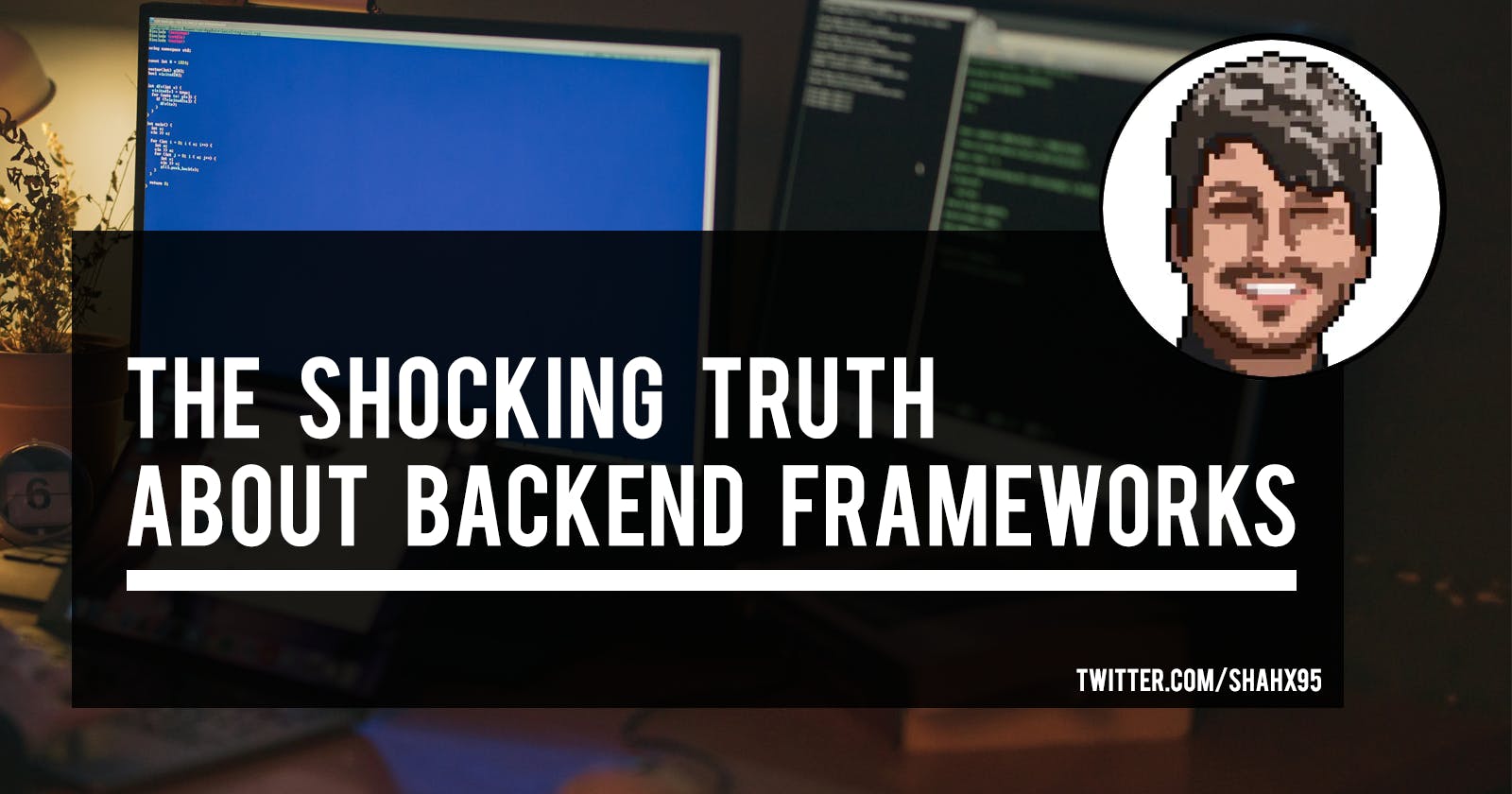Choosing a backend framework can be an overwhelming task for developers, especially for those just starting out in their careers. With so many options available, it can be difficult to know where to begin and which framework is the best fit for their career prospects.
Recently, on a popular programming subreddit, a user asked for advice on which backend framework to choose to kickstart their career. After providing my thorough perspective on the topic, I realized that my comment was substantial enough to warrant creating a blog post out of it, and that's how I ended up creating this post.
So what's the magic framework
There is none. Becoming a backend developer is a challenging and rewarding journey, but it's important to remember that the framework you choose to work with is just a tool. The real goal is to learn the fundamentals of backend development, such as routing, templating, middleware, and database communication. These concepts are not disjoint and are applicable across multiple frameworks.
It's easy to get caught up in the hype of a particular framework and frame yourself as a "Node/Express" developer, for example. But what happens when you need to write code in Django? If your understanding of the fundamentals is solid, you'll be able to adapt to the new framework with ease.
Think of it like a woodworker. A skilled woodworker doesn't just know how to use a hammer, they understand how to use all the tools in their toolbox. They know when to use a hammer, when to use a mallet, and how to use each tool to achieve the desired outcome. Similarly, as a backend developer, it's important to understand the concepts, not just the tools.
So, don't get too caught up in the framework choice. Start with something that you're comfortable with and focus on learning the basics. Once you have a solid understanding of the fundamentals, you'll be able to adapt to any framework and write clean, efficient, and maintainable code.
I still need to pick a framework to start with...
Right. So let's discuss how to go about making that choice.
Consider the job market in your location as a way to decide on the framework to pursue. Different regions may have varying demands for certain frameworks. For example, if you are looking for a job in a startup in Silicon Valley, you may find that there is a high demand for Node.js and Express.js developers, whereas if you are looking for a job in a government organization in Washington, D.C. you may find that Java and Spring are more in demand.
It's important to be aware of the job market and job requirements in your area and to have a good understanding of the locally in-demand framework to increase your chances of finding a job that fits your skills and interests.
Conclusion
In short, the framework is a means to an end, not an end in itself. The goal is to learn the basics of backend development and become a skilled developer who can adapt to any tool. 'Tech agnostic' is the term proficient developers like to use these days. Remember, the true measure of a developer's proficiency is not the tool they use but the quality of their code and ability to solve problems.
